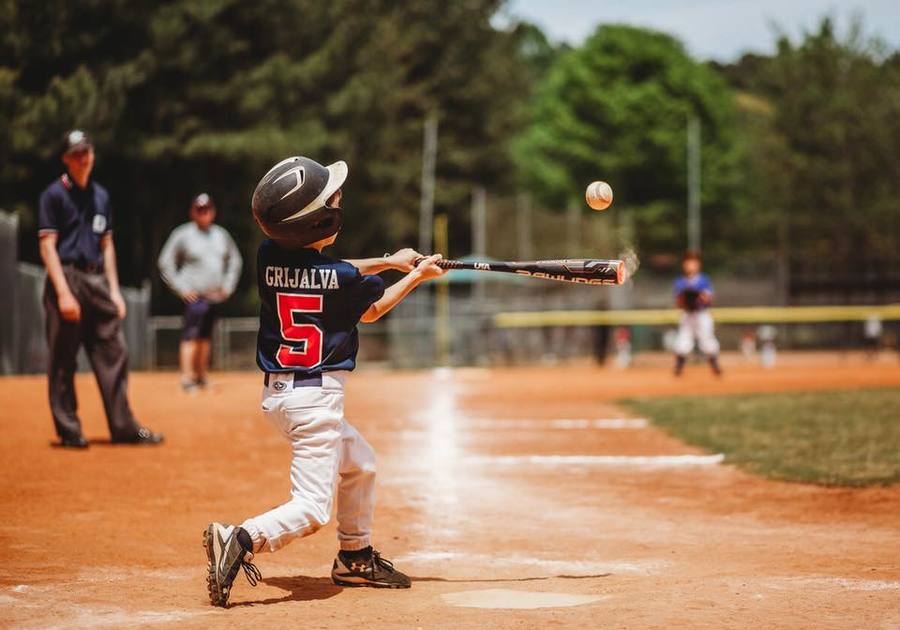For many families, this is a wonderful time of year. The weather is beautiful and sports programs have started back!
Kids love to participate in youth sports including baseball, softball, soccer or roller hockey. And most parents agree that there are many benefits like great exercise, being outdoors, making friends, practicing good sportsmanship as well as acquiring athletic skills.
However, there are also some risks. Along with the usual bruises, sprains and broken bones, there is a real danger of a concussion. Every parent with a child in sports should know what a concussion is, how to spot one and where to go for help.
According to the CDC, a concussion is a type of traumatic brain injury—or TBI—caused by a bump, blow, or jolt to the head or by a hit to the body that causes the head and brain to move rapidly back and forth. This sudden movement can cause the brain to bounce around or twist in the skull, creating chemical changes in the brain and sometimes damaging brain cells. Medical providers may describe a concussion as a “mild” brain injury because concussions are usually not life-threatening. Even so, the effects of a concussion can be serious.
Talk with your kids about concussions and emphasize that they should report any blows, bumps, or symptoms to you and their coach immediately. Safety should always be the top priority. Following the rules and practicing good sportsmanship behavior help, but when appropriate, children and teens should also wear a helmet to lower their risk of injury. But bear in mind that no helmet is concussion-proof so even when wearing a helmet, players must report any incident that could put them at risk.
HOW CAN I SPOT A POSSIBLE CONCUSSION?
The CDC says that children and teens who show or report one or more of the signs and symptoms listed below, or simply say they just “don’t feel right” after a bump, blow, or jolt to the head or body, may have a concussion or more serious brain injury.
- REPORTED SYMPTOMS:
- Headache or “pressure” in head.
- Nausea or vomiting.
- Balance problems or dizziness, or double or blurry vision.
- Bothered by light or noise.
- Feeling sluggish, hazy, foggy, or groggy.
- Confusion, or concentration or memory problems.
- Just not “feeling right,” or “feeling down”.
- OBSERVED SYMPTOMS:
- Can’t recall events prior to or after a hit or fall.
- Appears dazed or stunned.
- Forgets an instruction, is confused about an assignment or position, or is unsure of the game, score, or opponent.
- Moves clumsily.
- Answers questions slowly.
- Loses consciousness (even briefly).
- Shows mood, behavior, or personality changes.
WHAT SHOULD I DO IF MY CHILD HAS THESE SYMPTOMS?
Signs and symptoms generally show up soon after the injury. If you think your child or teen may have a concussion, you should keep them out of play for the rest of the day. However, you may not know how serious the injury is at first and some symptoms may not show up for hours or days. Never judge the severity of the injury yourself; a health care provider should assess your child for a possible concussion.
You should continue to check for signs of concussion for a few days after the injury. If your child or teen’s concussion signs or symptoms get worse, you should immediately take him or her to the emergency room for evaluation.
WHEN SHOULD I CALL 9-1-1?
In rare cases, a hematoma can form on the brain after a bump, blow, or jolt to the head or body and can squeeze the brain against the skull. Call 9-1-1 or take your child to a Pediatric ER right away if he or she exhibits one or more of these serious warning signs:
- One pupil larger than the other.
- Drowsiness or inability to wake up.
- A headache that gets worse and does not go away.
- Slurred speech, weakness, numbness, or decreased coordination.
- Repeated vomiting or nausea, convulsions or seizures (shaking or twitching).
- Unusual behavior, increased confusion, restlessness, or agitation.
- Loss of consciousness (passed out/knocked out). Even a brief loss of consciousness should be taken seriously.
WHEN CAN MY CHILD RETURN TO SPORTS?
Children and teens who continue to play with concussion symptoms or who return to play too soon increase their risk of getting another concussion. A second concussion that happens while the brain is still healing can affect a child for a lifetime.
The brain needs time to heal, and your child's return to the field should be a gradual process that is carefully managed and monitored by a health care provider.



To stay in the KNOW - Sign up for our FREE weekly newsletter HERE!
Receive information about family-friendly events in/around Duluth, Norcross, Suwanee, Johns Creek, Peachtree Corners & beyond.
Have an event you'd like submitted to our calendar for consideration? Submit an event HERE.
Want to tell over 10,000 families in this area about your business?
Email beckys@macaronikid.com for advertising information.
Tell a friend about DNJC MK! More subscribers help us get more fun Giveaways from our sponsors for your family!
Don't forget to be social with us on Facebook, Twitter & Instagram.




